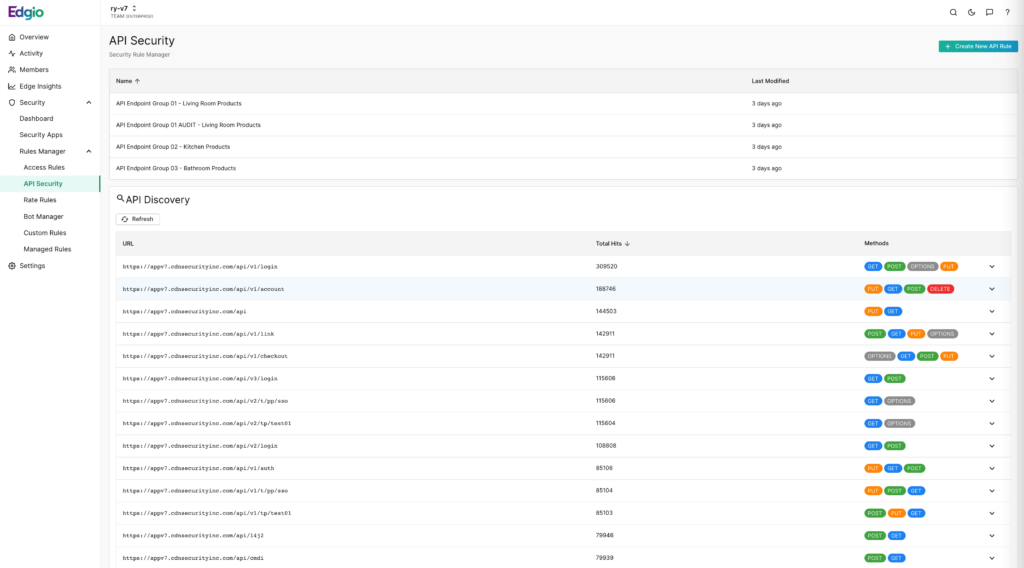Edgio Applies Machine Learning Algorithms to Secure APIs
Edgio today announced it has added the ability to use machine learning algorithm to discover and protect application programming interfaces (APIs) to the portfolio of application security services it makes available via its content delivery network (CDN).
Richard Yew, head of network and data center strategy at Edgio, said the algorithms used by the Edgio Security service make it simpler to discover rogue and zombie APIs that might have been deployed by developers and which cybersecurity teams might be unaware of.
The Edgio service supports OpenAPI, a specification language for HTTP APIs that provides a standardized means to define APIs. Via that specification, it then becomes possible for Edgio to consistently enforce encryption and apply API rate limiting and other controls. Currently, Edgio provides support for REST APIs with plans to support other formats, such as GraphQL, based on customer demand, said Yew.
In addition, Edgio uses a security model based on API schema validation that ensures only API requests with the proper specifications are allowed access. That approach prevents malformed or unexpected data from causing errors or being exploited by cybercriminals to launch, for example, a SQL injection attack. It also prevents malicious API calls from overloading the application by filtering them at the point of origin.
Rather than attempting to secure APIs in isolation, the Edgio approach provides organizations that host applications on its CDN with a more holistic web application and API protection (WAAP) approach that is managed on their behalf, said Yew.
The Edgio CDN has more than 300 points-of-presence (PoPs) for deploying applications and associated APIs as closely as possible to the location where they are being consumed to ensure consistent application performance levels. Like most CDN providers, Edgio makes a case for deploying web applications on external networks that provide a layer of isolation between applications that are targeted by cybercriminals and internal corporate networks.
It’s not clear whether application security is now being managed by cybersecurity teams versus DevOps engineers who are increasingly adopting DevSecOps best workflows. The Edgio platform enables DevSecOps teams to test and validate API schema changes in production via an additional audit profile to lower the risk of blocking legitimate traffic and decrease the mean-time-to-resolution (MTTR) with faster testing. Rule changes can be deployed across the entire network in under 60 seconds to thwart attacks.
As organizations deploy more modern microservices-based cloud-native applications that each have their own unique API, there is a need to centralize the management of API. In most organizations, that effort will require collaboration between development teams and cybersecurity professionals that are at least nominally responsible for application security. The challenge, of course, is the cultural divide that exists between these two teams remains significant.
One way or another, however, that issue will need to be addressed as cybercriminals increasingly target lightly defended APIs to exfiltrate data that they can then either hold for ransom or sell to other interested parties. In fact, right now, most organizations are still making it too easy for cybercriminals to exploit APIs.




